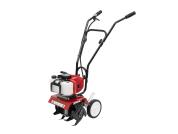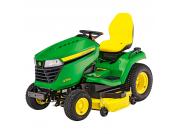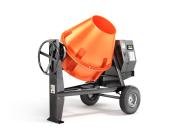
10 Ways to Enhance Your Garden’s Overall Wellness in Autumn
Autumn is finally here, and with the colder weather, you may find yourself needing different garden maintenance services. In this article, we will be giving you our top ten ways to enhance your garden’s overall wellness in autumn.
1. Seasonal Planting for Vibrant Colours
Seasonal planting is of the utmost importance, both for aesthetic purposes and in terms of your plant’s health. Choosing autumn-friendly plants, which can withstand the change in weather and look beautiful all year round are a must. Plants that are present in the garden during autumn contribute massively to the visual allure of your space – think warm tones of red, orange and gold painting a picturesque landscape.
As professionals within the area, we would recommend choosing plants that specifically adapt to the autumn weather conditions and are much more likely to withstand the temperature fluctuations and even the potential frost that comes with this season. This will ensure the longevity of your garden’s beauty and will allow you to enjoy your outside space, all year round.
For specific autumn plants, we would recommend ones such as the Autumn Joy Sedum, which is known for its hardy nature. This perennial can not only withstand cooler, harsher temperatures but will give a wonderful soft pink colour when it flowers. This can look pleasing to the eye and attract late-season pollinators. You could also go for a range of Chrysanthemums dotted around your estate. These come in a wide variety of colours and are considered an autumn classic. These feisty flowers are known for their durability and again, their ability to thrive in much colder weather.
2. Mulching for Root Protection and Moisture Retention
Mulching can be extremely beneficial in the winter and autumn months. When looking at ways to enhance your garden’s overall wellness in the cold, mulching is a great way to do so. Mulch can act as a way to insulate your plants against the frost and also, as a protective blanket for soil. Your plants may need shielding from the biting chill of autumn and winter nights, and you won’t want those early frosts to catch you out.
As professionals, we recommend using mulch to create thermal barriers which will regulate the soil’s temperature throughout the upcoming months. This will prevent extreme stress to your plants and ensure they are able to bloom again come spring.
Mulch can also help retain moisture. During winter and autumn, the air becomes very fresh and crisp. Mulch can become a lifesaver, as it minimises water evaporation from the soil surface, ensuring your plant’s don’t become too damp. This also ensures they have consistent hydration.
In an article from Home & Gardens, where eight different types of mulch are discussed, they state that ‘the important thing to remember is that mulches can be divided into two main categories: inorganic and organic’. If you are looking for organic, it has been recommended to look for bark chippings, homemade compost or grass clippings. However, inorganic mulch can also be a great option. You can opt for alternatives such as gravel and pebbles, landscaping fabric or even rubber mulch.
3. Pruning and Trimming
Preparing plants for winter through pruning is a crucial practice that promotes the overall health and resilience amongst all your garden’s plants, trees and shrubbery. As the temperature begins to drop and the growing season comes to a close, removing dead or diseased growth becomes even more important to the overall wellness of your garden. Pruning serves as a preventative measure, eliminating potential hiding places for pests and diseases that could otherwise thrive in the dormant season.

4. Soil Enrichment with Nutrient-Rich Compost
Another great way to improve your garden’s overall appearance and wellness during autumn is to use a compost that is rich in nutrients. Soil serves as the ultimate powerhouse of nutrients that can invigorate the earth below and foster a thriving garden ecosystem.
Compost acts as a natural organic fertiliser which not only nourishes plants but also improves soil structure and water retention. Using compost can be a great way to improve the fertility of your soil, even in autumn but also contribute to more sustainable gardening practices. Speak to your professional gardening team directly, who will be able to offer you personalised advice based on your estate’s needs, and also can help you get started on your garden’s wellness journey.
5. Bulb Planting for Spring
When planning ahead for a vibrant spring garden, autumn bulb planting is key. Building on the success of a well-executed spring planting, you will have to put some consideration into your selection of bulbs. For example, consider incorporating British classics such as tulips and daffodils, which not only add a burst of colour but also symbolise the arrival of spring.
Tulips, with their diverse array of colours and varieties, create a stunning visual impact, while daffodils offer a charming, naturalised look. Planting these bulbs in the autumn will allow them to have enough time to establish their roots before winter, ensuring a spectacular display when spring arrives. With thoughtful planning and the right bulb selection, you can lay the foundation for a beautiful and well-maintained spring garden.
6.Pest Management for Next Year’s Growth
In the autumn, as mentioned previously, is the perfect time to start removing dead plants and infested branches. By removing these from your garden or estate, you can eliminate any potential nesting sites and reduce the risk of other pest infestations.
In autumn, we would recommend requesting a garden clean up from your garden maintenance service. With a lot of leaves falling down during the colder months, alongside other branches and debris, a perfect hiding space for unwanted pests is created. By regularly having a professional gardening maintenance service clean up your outdoor space, you can eradicate any potential nesting sites and disrupt a pest’s life cycle.
7. Clean Up Garden Beds
Another way to enhance your garden’s wellness in autumn is to clean up your garden beds. You can remove any spent annuals and trim back perennials which may have overgrown in the warmer months. This not only contributes to the aesthetic appeal of your garden but also plays a crucial role in preventing the potential spread of diseases and pests that can often target decaying or dead plant material.
Additionally, trimming back overgrown perennials is essential for maintaining the overall balance of your garden. Perennials that flourished during the warmer months can benefit from a strategic pruning, promoting better air circulation and reducing the risk of fungal issues. This clean-up process not only fosters a visually pleasing landscape but also sets the stage for a rejuvenated and resilient garden in the following growing season.
8. Leaf Management for a Tidy Garden
In any season, leaf management plays a pivotal role in your garden’s overall wellbeing. TO maintain that healthy and vibrant landscape, even through autumn, putting leaf management at the top of your priority list is a must.
As well as aesthetic benefits, proper leaf care can help all the plants, trees and shrubs in your garden continue to thrive. Raking is a fundamental aspect of leaf management, and the timing of this can be crucial. Regular removal of fallen leaves prevents them from smothering the grass and inhibiting sunlight and airflow, which can lead to ongoing fungal issues. When raking, you may notice that your professional gardening team will use a gentle technique which will avoid damaging your turf, lawn or uprooting any plants.
Again, if you are looking for an eco-friendly way to dispose of unwanted debris, you can instead choose to compost your waste. The collected leaves can enrich your soil and provide valuable nutrients. Shredding the leaves before composting accelerates the decomposition process and ensures a more homogeneous mix.
9. Creating Wildlife-Friendly Features
According to the article titled ‘Wildlife garden ideas – 16 ways to transform your backyard into a nature-friendly plot’ from Home & Gardens ‘wildlife garden ideas can bring innumerable benefits to us, our gardens and the environment, as well as wildlife’. Whether you install bird houses around your estate, or use less chemical pesticides, inviting wildlife into your garden can be a great idea – year round!
10. Protecting Outdoor Furniture for Winter
Ensuring the longevity of outdoor furniture involves proactive measures, especially when preparing for the harsh conditions of the great British winter weather. By storing or covering your furniture during the colder months, you can ensure that your beloved garden furniture pieces are protected from the elements. As professionals, we would recommend storing soft furnishings such as pillows, and other delicate materials indoors to prevent potential damage from freezing temperatures or excessive moisture.
For larger pieces like tables and chairs, it’s a good idea to invest in quality covers which are made to be specifically weather-resistant. These will provide a protective barrier against rain, snow, and UV rays. A top tip from us – before covering over your furniture pieces, ensure that everything has been cleaned and is dry. This prevents a build up of mould or mildew growth. You could also choose to elevate your furniture off the ground. By preventing contact with the cold, damp surfaces, your garden furniture’s lifespan can be expanded, allowing you to enjoy them for years to come.
Garden and Landscape Design – How BZ Gardens Can Help You
When it comes to garden and landscape design, you want a garden you can enjoy all year round. Here at BZ Gardens, we understand the importance of not only how beautiful a garden can look, but also how healthy it can be. As we move into the colder months, it’s vital that we stay on top of our garden’s overall wellness. If you would like to learn more about our garden and landscape design services, you can contact us at 01483 967160.









































